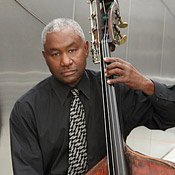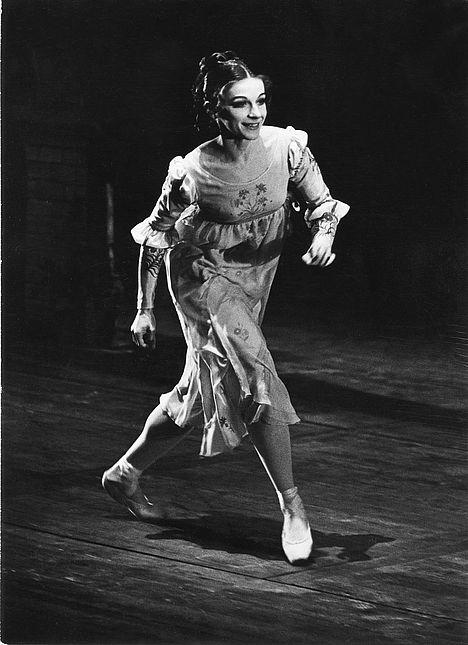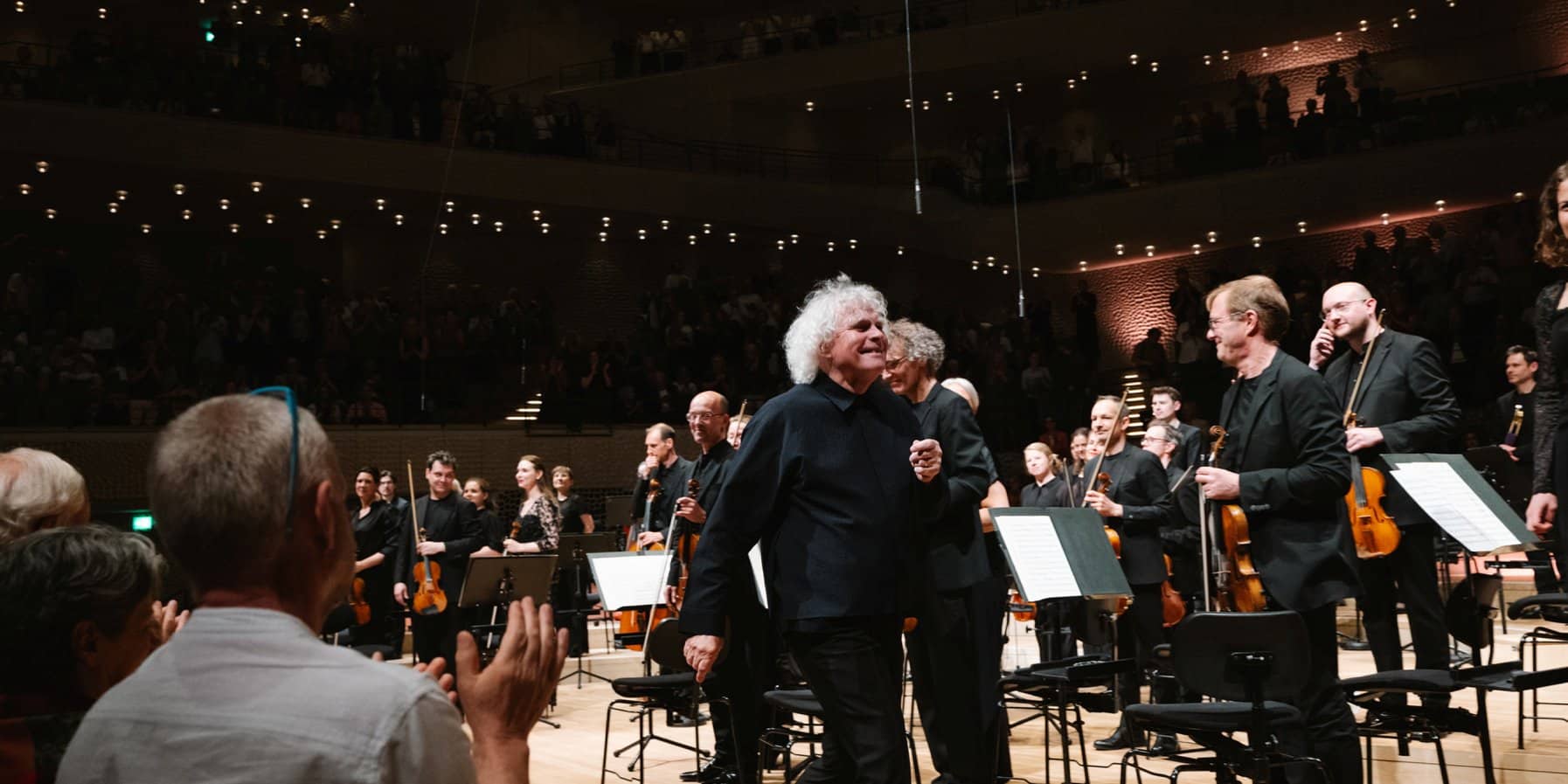LA Phil mourns a bass
mainFrederick Tinsley, 76, played 42 years in the Philharmonic, joining the double-bass section in 1974.
Before that, he deputised in the New York Philharmonic.
The cause of his death is not known.
Our sympathies to his family and colleagues.






Shame he didn’t retire a few years ago
De mortuis nil midi bonum
De mortuis nihil nisi bonum.
*De mortuis nihil nisi bonum dicamus/ De mortuis nil nisi bonum.
(bloody auto-complete)
I thought the same thing when autocorrect gave me “midi,” but I kind of like the autocorrected version.
It does have a ring to it.
Would you mind clarifying your comment.
The rumor is that the LA philharmonic bass section is split, half hot shots, half old folks who can’t play anymore. This creates a big divide filled with animosity in the section. I’m not sure which side Frederick was on, but with his age, it’s likely he couldn’t play as well as he did in his prime. These aging musicians need to retire with dignity rather than play after they’ve greatly passed their prime. It’s a shame for the orchestra, and a shame to all the young musicians ready to enter the workforce.
In other words, you are discussing what you yourself know to be nothing but a “rumor” and making assumptions based on it as if it were an established fact, then follow it by elaborate speculation about a musician’s playing ability without knowing anything about it. Nice.
Whatever happened in this particular case, the fact remains the same. Once you are no longer able to do your job at an acceptable level, you should retire. It isn’t fair to anyone.
Absolutely true. But may have absolutely nothing to do with this particular musician.
Can’t understand why these players don’t want to retire. What’s so great about carrying on for so long. As you say it’s not fair on young players trying to get a job.
Your incomprehension of their reasons does not mean that such reasons don’t exist and/or aren’t valid. In my orchestral life I have encountered several musicians in their seventies who were equal and sometimes better contributors to their orchestra’s playing quality in comparison with most of their younger colleagues.
I agree. It’s plain selfish.
Except when it isn’t.
When is it not selfish?? These people have had full careers. No matter how well they play for their age, it’s always much less than their peak. There are hoards of talented and fully qualified musicians just leaving conservatory waiting to win a job. In many European countries, they have a mandatory retirement age of around 65. This is a system that makes sense. It doesn’t give these old folks a chance to stay past their prime and make everyone around them miserable and resentful. In my orchestral career, most if not all the older musicians I met were nice people who were bringing their section down. There may be a couple exceptions, but that is generally the rule.
The key word is “generally”. Because of all those marvelous exceptions, mandatory retirement age is counterproductive, not to mention intrinsically unfair and unnecessary. Kicking out a brilliant 65-year-old or 70-year-old or sometimes even 75-year-old may therefore be bad for music and for the orchestra, let alone truly selfish of a novice who would take his/her place. Assuming the worst and projecting it on just departed musician about whom one knows very little is rude and unwise.
Everyone is a “novice” until they get experience. The young people can’t get experience until we get jobs. Which are hard to get in the USA because older people can’t let go. I’m a professional musician in a reputable orchestra, and I don’t know any brilliant 65 or 70 or 75 year old musicians who can still play their instruments at a high level. It’s the sad truth. Mandatory retirement is a very good thing, and I hope orchestras here enact it someday. Although with the state of affairs in the USA, I’m sure that won’t happen. By the way, are you implying that these “novice” (the kiddos coming out of conservatories are anything but novice) are selfish to take auditions and try and win jobs? Your logic is so backwards, it makes no sense at all.
Almost anyone joining a fine orchestra can be called a novice at first because even for experienced musicians it takes a while to adjust to the style of playing of their new colleagues. The fact that you don’t know any great orchestral musicians over 65 doesn’t mean that they don’t exist. It just means that you haven’t been lucky enough, because I know that they do. Fortunately for me, I have encountered some of them, just as I have known a few players of all ages who didn’t deserve to be where they were. If an outstanding older player is kicked out just so that a new person can come in even if this new one can’t contribute as much to the orchestra’s playing quality, then the only one benefiting from this situation is the new player and therefore selfish is a fair description of such action. If anything “mandatory” is warranted, it should be based on a person’s quality as an orchestral musician and not on a date in a passport.
What is there to clarify? The judgmental and mean-spirited qualities of that comment are clear enough.
Ageism mixed with idiocy is a dangerous combination. Let’s see how Al C feels when he is passionately making music – albeit perhaps with less dexterity – at a later age and is told he is to old to continue. Heck, “Logan’s Run” might make sense to youngsters hoping for job openings.
I absolutely plan to retire by age 65. I want to enjoy my later years and not drag down my section. There are a couple people in my section who are of the retirement age and let me tell you, nothing kills passion like hearing the person next to you playing out of tune with an ugly sound. By the way, just because someone disagrees with you doesn’t make them an idiot. Calling someone a name to prove a point sort of invalidates everything you said.
In your case, I think your ageism has reinforced my comment rather than negated it. Stop validating life and art with an arbitrary number: you may well have insights and artistry far beyond your 65th year and it would be abhorrent to deprive other artists and audiences of your talents just because you have made a poor decision in youth.
I (respectfully, unlike you) can agree to disagree. Call me up when you’re in your 70s and torturing people with your “music” and we can have this argument again 😉
Al C.
The law is that you have to show that they are no longer great players if you want them to retire. You can’t just remove them based on age, it has to be on playing ability. Of course, going through the process of proving someone can no longer perform to the required standard is unpleasant if that person doesn’t want to go (hence senior people in the organisation who should be making these decisions often prefer to ignore the problem).
The law in the USA. Not in the rest of the western world.
If that is true, then it is time for “the rest of western world” to grow up and recognize that the value of a musician should be determined according to the quality of his/her musical abilities rather than on anything else.
Sorry, this was too awkwardly and imprecisely phrased.
The value of an orchestral musician should be determined according to the quality of his/her musical abilities and his/her overall contribution to the musical quality of his/her orchestra, rather than be based on anything else.